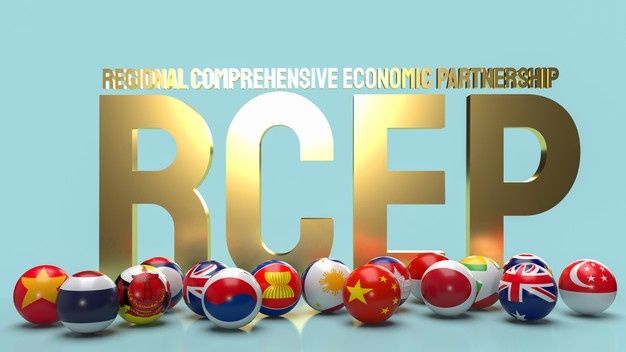The Regional Comprehensive Economic Association (RCEP) will come into effect on January 1, 2022.
Upon entry into force, the it will create the world’s largest trading bloc by economic size, according to an UNCTAD study released on December 15.
RCEP includes 15 East Asian and Pacific nations of varying economic sizes and stages of development.
Members of that bloc include Australia, Brunei Darussalam, Cambodia, China, Indonesia, Japan, the Republic of Korea, Laos, Malaysia, Myanmar, New Zealand, the Philippines, Singapore, Thailand and Vietnam.
The RCEP will become the world’s largest trade agreement as measured by the GDP of its members, almost a third of global GDP.
In comparison, other important regional trade agreements by participation of world GDP are the South American trade bloc Mercosur (2.4%), the continental free trade zone of Africa (2.9%), the European Union (17.9%) and the Agreement between Mexico. United States and Canada (28 percent).
RCEP
UNCTAD’s analysis shows that the impact of RCEP on international trade will be significant. «The economic size of the emerging bloc and its commercial dynamism will make it a center of gravity for world trade,» says the report.
In the midst of COVID-19, the entry into force of the RCEP may also promote business resilience.
Recent UNCTAD research shows that trade within these agreements has been relatively more resilient to the pandemic-induced global trade recession.
The agreement covers several areas of cooperation, with tariff concessions being a central principle. It will eliminate 90% of tariffs within the bloc, and these concessions are key to understanding the initial impacts of the RCEP on trade, both inside and outside the bloc.
Under the RCEP, trade liberalization will be achieved through gradual tariff reductions.
While many fees will be removed immediately, others will be gradually reduced over a 20-year period.
The tariffs that remain in place will be mainly limited to specific products in strategic sectors, such as agriculture and the automotive industry, where many of the RCEP members have chosen not to comply with trade liberalization commitments.
![]()

